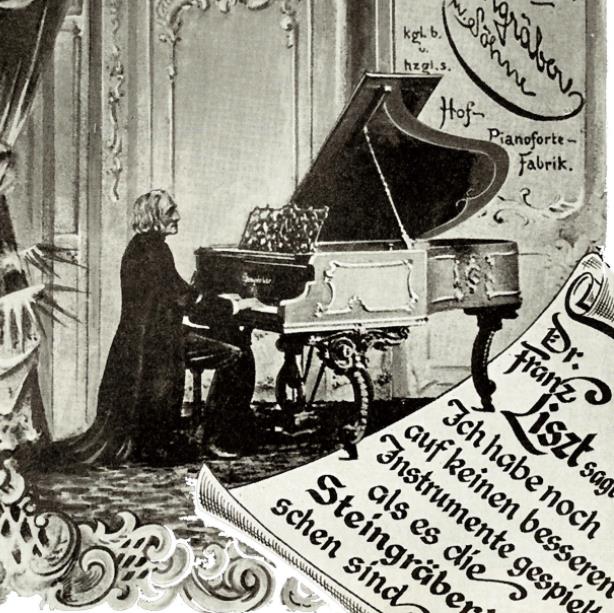Franz Liszt, after whom the competition and the University of Music in Weimar is named, always felt obligated to support young artists. He was significantly more than “just” a piano virtuoso and composer: He worked over a period of decades as a teacher, court conductor, a writer on music and cultural politician in Weimar.
His (never implemented) plans for a Goethe-Stiftung (Goethe-foundation) were intended to yearly award prizes in the areas of music, painting, sculpture and literature – the International FRANZ LISZT Piano Competition Weimar-Bayreuth still keeps several of these ideas alive even in the 21st century. Liszt probably would have liked the idea of a pianist performance comparison in his own name. In the last few years of his life every summer, he gave a free of charge, week long master class to eleven selected pianists in the Weimar “Hofgärtnerei” (court garden) – today known as the Liszt house.














